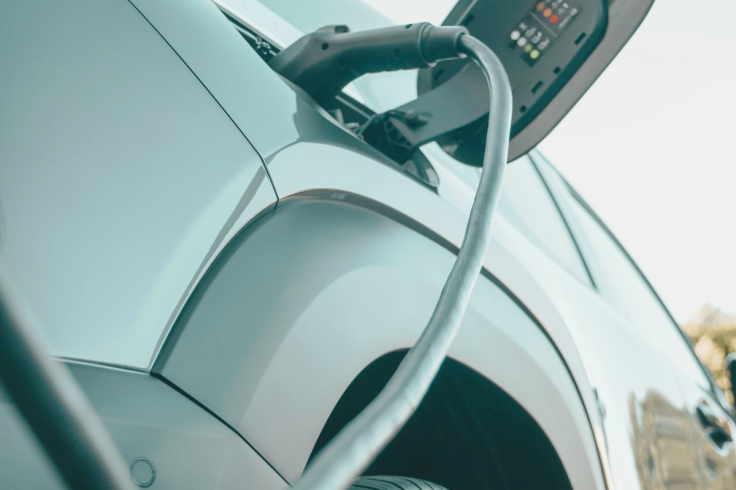Trump's Tariff Tsunami Triggers UK U-Turn On Electric Car Targets In Bid To Save Auto Industry

The UK is hitting the brakes on its electric vehicle (EV) ambitions, and it's all thanks to Donald Trump's tariff tsunami. On 7 April 2025, Prime Minister Sir Keir Starmer unveiled plans to loosen strict EV sales targets, a move aimed at protecting Britain's car industry from the crushing weight of new US import levies.
With Trump's administration slapping a 25% tariff on goods from Canada and Mexico—and a 10-54% range on others—the UK's automotive sector, a £70 billion ($89 billion) economic engine, faced a stark choice: adapt or crumble.
This isn't just a tweak—it's a desperate pivot to keep factories humming and jobs intact as global trade tensions boil over.
A Tariff Storm Forces a U-Turn
The timing couldn't be more dramatic. Just days after Trump's tariff announcement on 2 April 2025, the UK government scrambled to respond. Originally, carmakers were mandated to ensure 22% of their 2024 sales were zero-emission vehicles, with fines of £15,000 ($19,000) per non-compliant car looming for those who missed the mark.
Now, as detailed by the BBC on 7 April 2025, those rules are being softened. Manufacturers get more wiggle room on annual targets, and penalties are slashed. 'We're giving the industry breathing space,' Starmer said in a statement, framing it as a pragmatic lifeline amid 'unprecedented uncertainty.'
Why the urgency? The US, Britain's fourth-largest car export market, soaked up £3.8 billion ($4.8 billion) in UK vehicles last year, per the Society of Motor Manufacturers and Traders (SMMT). Trump's tariffs threaten to choke that flow, especially for giants like Jaguar Land Rover, which ships premium EVs like the Range Rover Electric from Solihull to American showrooms.
With China retaliating via 34% duties on US goods and the EU mulling its own countermeasures, the UK's stuck in a trade war crossfire. Relaxing EV rules, Starmer argues, keeps production costs down and exports viable—buying time to negotiate with Washington.
Industry Cheers, Green Groups Fume
Not everyone's cheering. Green campaigners are livid, accusing Starmer of caving to pressure. 'This is a betrayal of our climate goals,' Greenpeace UK's Amy McCartan told The Guardian on 7 April 2025. EVs accounted for 18% of UK sales in 2024, shy of the 22% target, and critics fear this rollback could stall progress.
Transport & Environment, a clean mobility group, warned that weaker rules might flood forecourts with cheaper petrol models, undermining Britain's 2050 net-zero pledge. Starmer's counter? 'We're strengthening the phase-out commitment with practical reforms.' It's a tightrope act—balancing green ideals against economic reality.
A Global Ripple Effect Looms
This isn't just a UK story—it's a glimpse of a fracturing global order. Trump's tariffs, dismissed by the president as 'no big deal' on 5 April 2025, have already tanked markets, with the FTSE 100 shedding 9% in a week, per The Guardian.
Volkswagen's hiking US prices by up to £7,700 ($9,700), and Stellantis furloughed 900 workers as supply chains buckle. The UK's EV rule tweak might inspire others—Germany's car lobby is already pushing Berlin for similar relief.
Meanwhile, China's £1.1 trillion ($1.4 trillion) stimulus rumours signal a tit-for-tat escalation.
For Britain, it's a high-stakes gamble. Starmer's betting that shielding carmakers now preserves jobs—1 in 10 manufacturing roles depend on the sector—while buying time to charm Trump into a softer deal.
Will it save the industry or sell out the planet? The road ahead's anything but electric.
Originally published on IBTimes UK




















